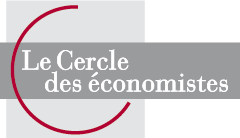Décrypt’audio : Embracing the Future, Together
From Jean-Hervé Lorenzi, president of the Rencontres Économiques d’Aix-en-Provence
Read the transcript of the podcast interview with Jean-Hervé Lorenzi, available in French audio.
“Embracing the Future, Together” is the theme of the 21st Rencontres Économiques d’Aix-en-Provence, which will be held on the first weekend of July, from 2nd to 4th July. Welcome Jean-Hervé Lorenzi!
Hello!
You are the founder of Le Cercle des économistes and you chair this forum on “repairing France and rethinking capitalism”, which is the spirit of this event. Where does is come from?
Look, it’s quite simple: the beginning of July is a very important time for all the partners, stakeholders and economic and social players in our country to discuss the future. No one has the slightest idea of what the future might be: all we know is that there will be a strong recovery in the first few months, but we have not yet learned all the lessons of this year. We have therefore effectively centred our reflection and the 52 sessions or debates that will take place around these two fundamental questions: “Is society really going to change” – we call it capitalism, since we are a capitalist country – and “Is the French society able, not only to bounce back, but also to finally recover some of the qualities, some of the results that it had some twenty or thirty years ago.
So what is the way to rebuild our societies? We have seen that young people have a lot of difficulties, that they have paid a heavy price for the crisis: does intergenerational solidarity play a big part in this?
Yes, but not exclusively. Two things have been observed in reality. The first was that we had lost economic substance in the country. The second is that many social categories are actually being mistreated. Young people are part of this category, and that is why we, at Le Cercle des économistes, have defended the idea of a Youth Guarantee generalised to all 18 to 25 year olds, but many jobs are badly paid. We saw this at the peak of the health crisis with nurses and health workers, at least in the public sector. We can also see it in the field of technology, where we can see that many of our researchers go elsewhere to develop their activities, simply because they are poorly paid in France in programmes that are themselves under-sized.
You also mentioned the reflection on capitalism, whose limits have been shown by the crisis. What is the future for capitalism today, Jean-Hervé Lorenzi?
I think that the future of capitalism is obviously very concerned with the problems of the development of the planet, everything related to the environment. The second aspect is a capitalism that shares power in a much more significant way between what we call the ‘stakeholders’, of which the employees are part. Thirdly, it is a capitalism which reduces social fractures, i.e. inequalities. This has been very much developed over the last 15 years, and everyone is aware that we cannot continue to give the president of a big bank fifty million dollars while the salary of the receptionist is very low. So, in reality, all this is the mark of the evolution that we can hope to see in capitalism, otherwise the problems will be ahead of us.
Thank you very much Jean-Hervé Lorenzi, founder of Le Cercle des économistes. May I remind you that the 21st Rencontres Économiques d’Aix-en-Provence will take place on July 2, 3 and 4 with 350 speakers from all over the world and 52 sessions. The full programme can be found on lesrencontreséconomiques.fr.







